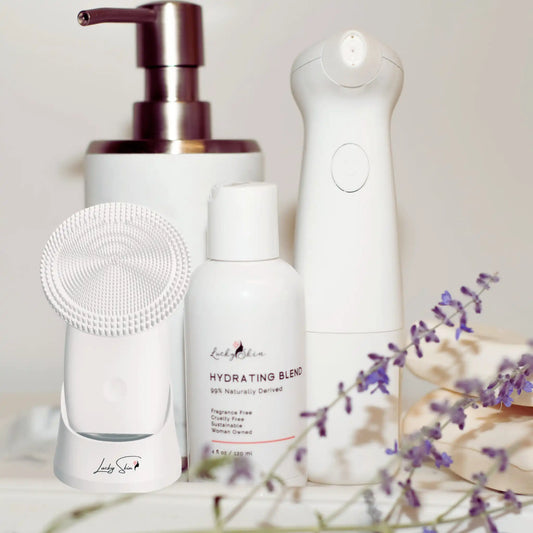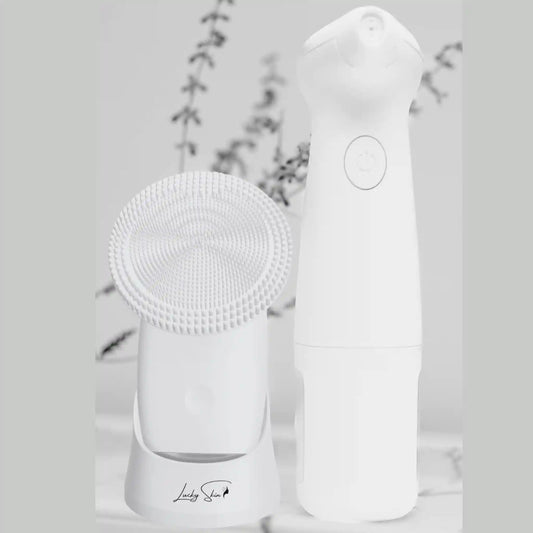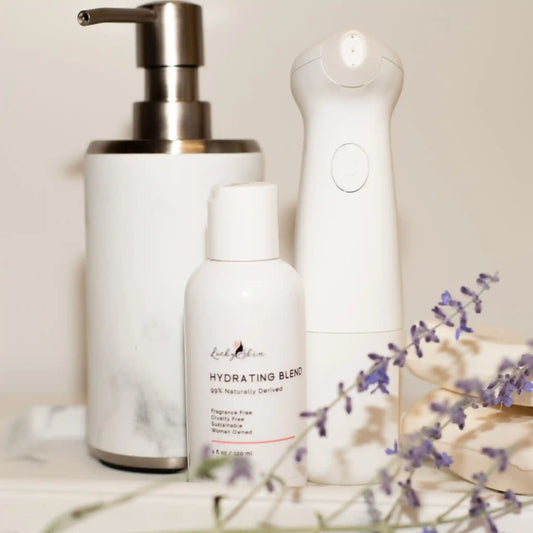Morning Routine Step 4 - Serum
Share
Here is my morning routine Step #4 - Serum
Serums are concentrated solutions with certain ingredients, for a example: vitamin C, vitamin E, hyaluronic acid serum and others. Just like chemical peels, you need to consider 3 things before you pick one: your skin type, your specific concern, and the level of your skin's sensitivity. So how do you know which serum to choose?
There are 6 main types of serums:
- The first type is hydrating serums. They are great for pretty much for all skin types but oily. If you feel like your skin is getting a little dry or tight you will be so happy to find a good hydrating serum. Unfortunately face lotion by itself will not be enough. You will need a hydrating serum to really lock the moisture into your skin. The most commons hydrating serums are: hyaluronic acid, glycolic acid, argan oil, glycerin, aloe vera, rosehip oil, rosewater, sea kelp, jojoba, and vitamin E.
- The second type is anti-aging serums. They are one of the most popular serums out there for women of all ages.
- Acne-fighting serums
- Exfoliating serums
- Skin whitening serums
- Restore and renew serums
I use my Lucky Skin Ionic (yourluckyskin.com) to apply my serums for maximum absorption into my skin and to give my face a massage to promote collagen and increase elasticity.
If you have dry skin, you should be looking for serums that contain some moisturizing ingredients in them like Vitamin E, glycolic or hyaluronic acid.
If you have oily skin, salicylic or glycolic acid may suit you better.
Always make sure to check the expiration date. Some serums may have a very short lifespan.
Also, some serums are better applied at night and some are best in the morning. For example, vitamin C serum can irritate sensitive skin so if you are trying it for the first time you might want to start using it at night.
If you want to read more about skincare ideas, click here.
This article is for informational purposes only. Ask your dermatologist before making any changes to your skincare routine.




